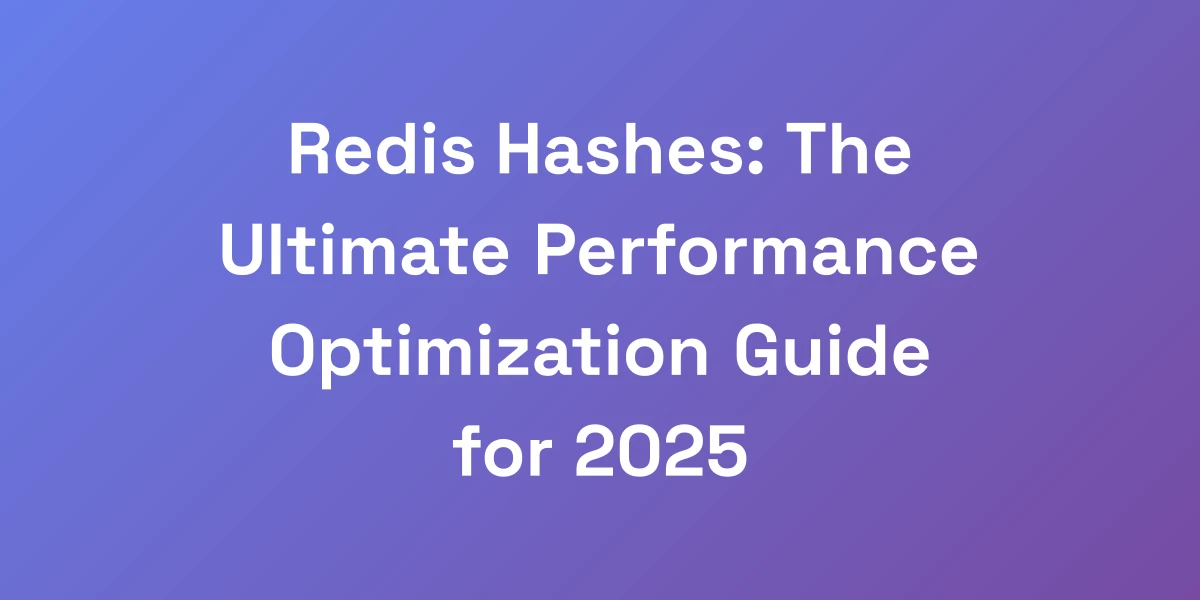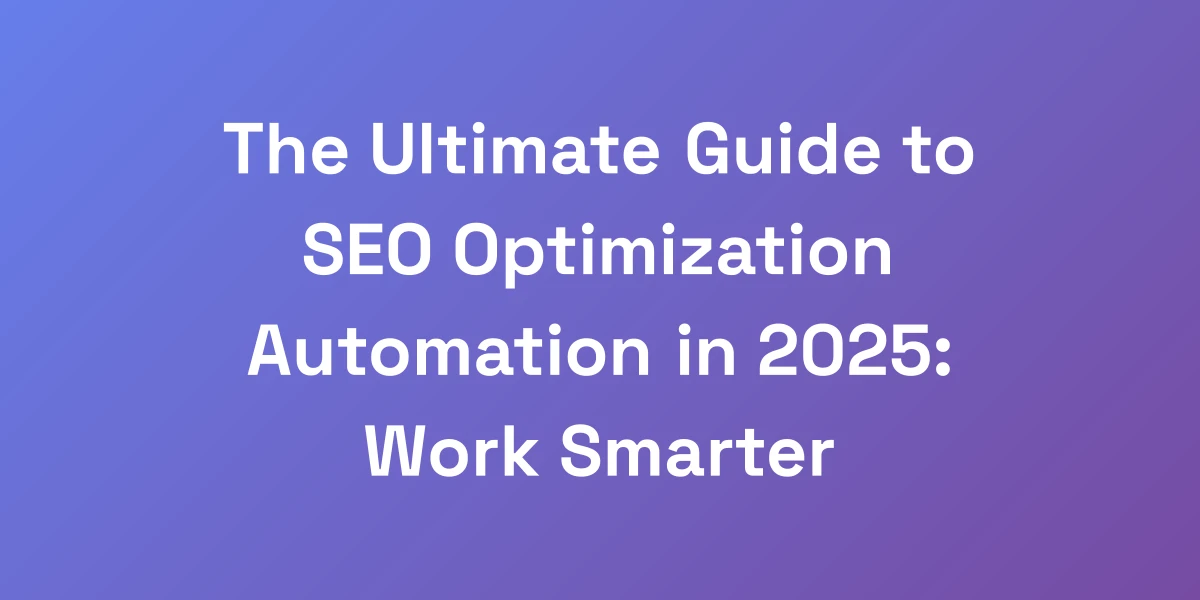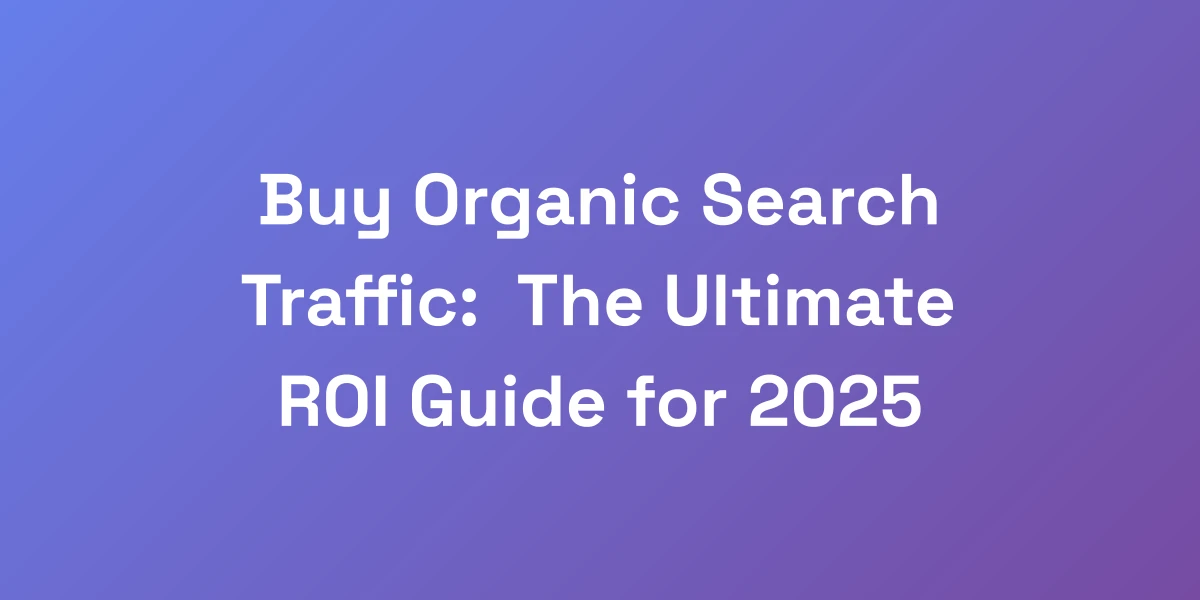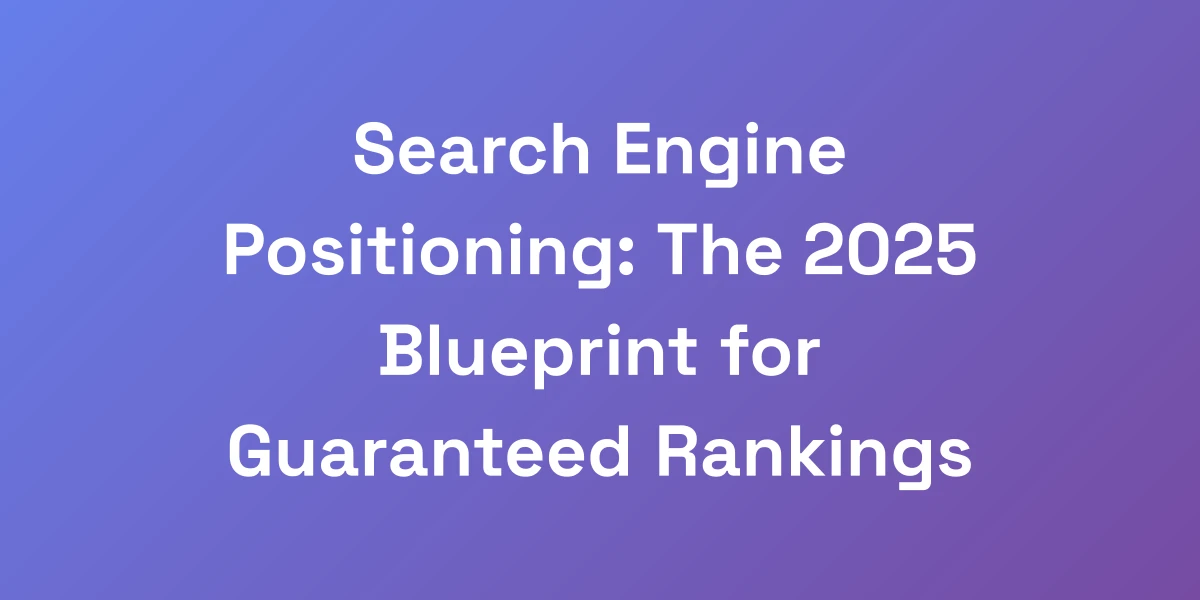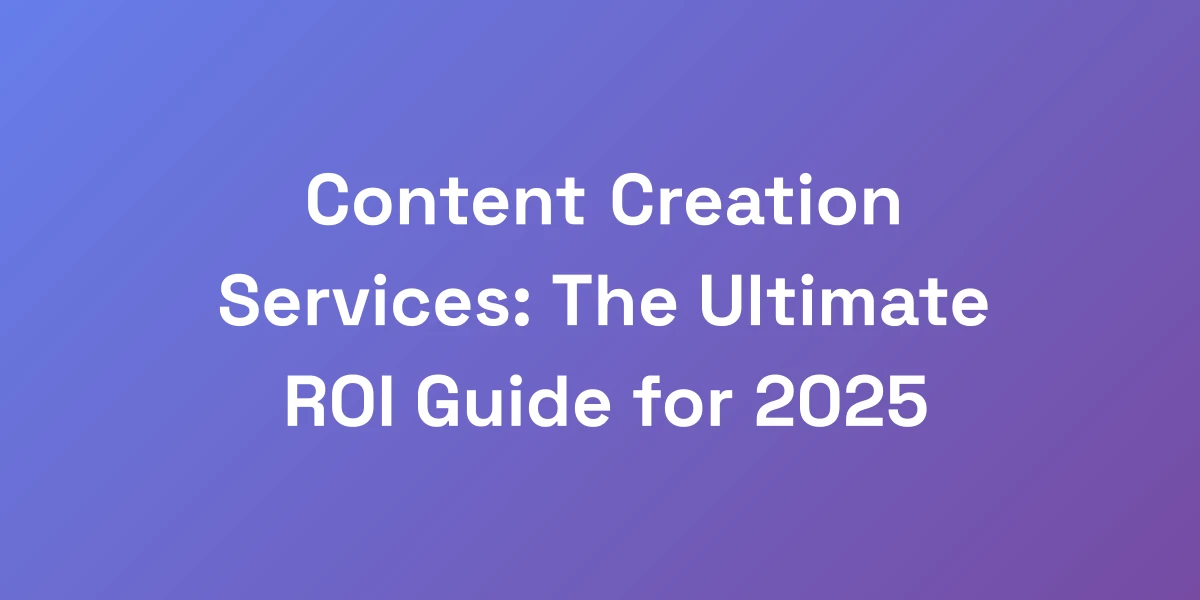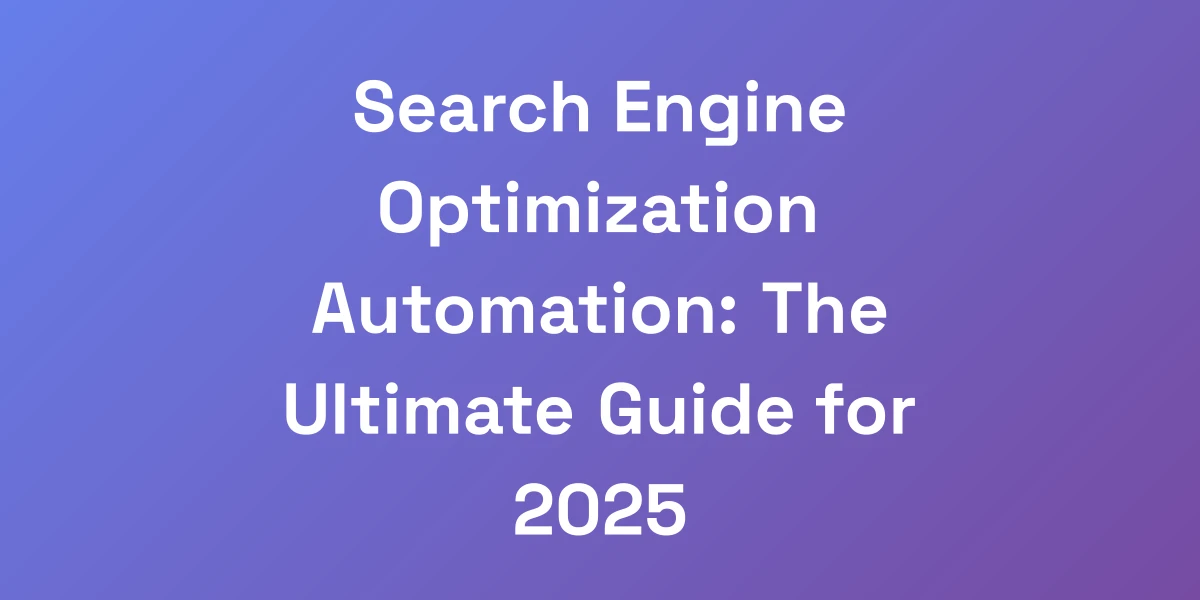
Search Engine Optimization Automation: The Ultimate Guide for 2025
Feb 24, 2025 | By [email protected]
Introduction
Ever felt overwhelmed by the sheer volume of tasks involved in search engine optimization automation? You’re not alone.
In a world where every second counts, finding ways to optimize our SEO strategies without burning out is more crucial than ever.
SEO automation isn’t just a trendy term; it’s a lifeline for businesses striving to stay relevant in the digital marketplace.
Imagine reclaiming hours each week that were previously spent on repetitive SEO tasks. Sounds enticing, right?
Let’s delve into how automation is reshaping SEO, tackling the challenges it presents, and unveiling strategies that can propel your business forward.
Understanding the Revolution of SEO Automation in 2025
In today’s fast-paced digital landscape, search engine optimization automation has become more than just a buzzword – it’s a necessity. As someone who’s spent countless hours optimizing content manually, I can tell you that automation is genuinely transforming how we approach SEO.
The beauty of automation lies in its ability to handle repetitive tasks while allowing us to focus on strategic thinking and creative content development.
Let’s explore how this technology is revolutionizing the way we optimize for search engines and why it’s becoming increasingly crucial for businesses of all sizes. The future of search engine optimization holds immense potential for those who adapt early.
The Evolution of SEO Automation Technologies
SEO automation has come a long way since its inception. Back in the early days, automation tools were limited to simple keyword research and basic site audits.
Today, advanced algorithms and artificial intelligence have elevated these tools to handle complex tasks like predictive analytics, content optimization, and personalized search results.
One significant leap is the integration of machine learning, which allows SEO tools to learn and adapt based on user behavior and search engine updates.
For instance, Semrush’s ContentShake AI can produce high-ranking content up to 12 times faster than traditional methods.
This evolution signifies a shift from manual, time-consuming processes to streamlined, efficient workflows that enhance productivity and accuracy.
Key Benefits of Automating SEO Processes
Automating SEO processes brings a plethora of benefits that can significantly impact your overall strategy.
- Time Efficiency: Automation can save you up to 10 hours per week, allowing you to focus on higher-value tasks.
- Consistency: Automated tools ensure that SEO tasks are performed consistently, reducing the risk of human error.
- Scalability: As your business grows, automation tools can handle increased workloads without the need for additional resources.
- Data Accuracy: Automated systems process large volumes of data with higher accuracy, providing reliable insights for decision-making.
- Cost Savings: By reducing the need for extensive manual labor, businesses can allocate resources more effectively, improving ROI.
These benefits collectively enhance your SEO performance, driving better search rankings and increased organic traffic.
Common Misconceptions About SEO Automation
Despite its advantages, SEO automation is often misunderstood. Let’s debunk some common myths:
- Automation Replaces Human Effort: While automation handles repetitive tasks, human insight remains crucial for strategy and creativity.
- All SEO Tasks Can Be Automated: Not every aspect of SEO is suited for automation. Tasks that require nuanced understanding and creativity still need a human touch.
- Automation Guarantees Instant Success: Automation tools are powerful, but they work best when combined with a solid SEO strategy and continuous optimization.
Understanding the true capabilities of SEO automation can help you leverage it effectively without falling prey to these misconceptions.
The Role of AI in Modern SEO Automation
Artificial Intelligence (AI) is the backbone of modern SEO automation. It’s not just about speeding up processes; AI brings intelligence to the table.
With AI, SEO tools can analyze vast amounts of data, identify patterns, and make informed decisions that would be impossible manually.
For example, AI-driven tools can predict keyword trends, optimize content for user intent, and even generate personalized content recommendations.
This intelligent automation ensures that your SEO strategies are not only efficient but also adaptable to ever-changing search engine algorithms.
Moreover, AI enhances the ability to understand and interpret user behavior, leading to more targeted and effective SEO campaigns. Check out how redefining SEO automation is shaping the industry.
Impact on Business Efficiency and ROI
Implementing SEO automation can drastically improve your business efficiency and return on investment (ROI).
By automating time-consuming tasks like keyword research, technical audits, and performance monitoring, your team can focus on strategic initiatives that drive growth.
The time saved translates directly into cost savings, making your SEO efforts more sustainable and scalable.
Moreover, the accuracy and consistency of automated tools ensure that your SEO campaigns are optimized for the best possible outcomes, leading to higher rankings and increased organic traffic.
According to Influencer Marketing Hub’s AI SEO Benchmark Report, 15.6% of respondents save over 10 hours per week using AI-driven SEO strategies, highlighting the significant ROI potential of automation.
Essential SEO Tasks That Can Be Automated in 2025
Having experimented with various automation tools, I’ve discovered that certain SEO tasks are perfectly suited for automation. These aren’t just minor improvements – we’re talking about game-changing efficiency gains that can transform your entire SEO workflow.
From keyword research to technical SEO audits, automation tools have become sophisticated enough to handle complex tasks with remarkable accuracy.
I’ll share my personal experiences with different automation approaches and show you exactly which tasks you should automate first for maximum impact.
Keyword Research and Analysis Automation
Keyword research is the foundation of any successful SEO strategy. Automating this process ensures that you’re targeting the right terms without the manual hassle.
- AI-Powered Tools: Platforms like Ahrefs and SEMrush use AI to analyze search volumes, competition, and relevance, providing a comprehensive keyword list.
- Predictive Analytics: Tools can forecast keyword trends, helping you stay ahead of the curve by targeting emerging terms.
- Long-Tail Keywords: Automation can identify long-tail keywords that are less competitive but highly relevant, driving targeted traffic to your site.
For example, using Semrush’s ContentShake AI can help you discover keywords that resonate with your audience, optimizing your content for maximum visibility.
Actionable Tip: Regularly update your keyword list using automated tools to reflect changing search trends and maintain relevance.
Content Optimization and Enhancement
Creating optimized content is crucial for SEO success. Automation tools can analyze your content and suggest improvements to enhance its performance.
- Content Analysis: Tools like Clearscope and MarketMuse analyze your content, providing insights on keyword density, readability, and topical coverage.
- AI Content Generators: AI-powered platforms like Writesonic and autoblogging platforms can generate content ideas, draft articles, and even optimize existing content for better performance.
- SEO Scoring: Automated tools assign an SEO score to your content, guiding you on areas that need improvement.
For instance, Content Whale leverages GPT-4 to create high-quality, optimized content that aligns with user intent, boosting your search rankings.
Actionable Tip: Use content optimization tools during the content creation process to ensure that each piece is fully optimized before publication. Additionally, refer to 2024 SEO content predictions and content marketing for small businesses to stay ahead of content trends.
Technical SEO Monitoring and Fixes
Technical SEO is the backbone of your website’s performance. Automating technical SEO tasks ensures that your site remains healthy and optimized for search engines.
- Site Audits: Tools like Screaming Frog and seoClarity perform comprehensive site audits, identifying issues like broken links, duplicate content, and mobile responsiveness problems.
- Performance Monitoring: Automated monitoring ensures that your site’s speed, uptime, and overall performance meet SEO standards.
- Automated Fixes: Some tools can automatically fix common technical issues, saving you time and effort.
Using seoClarity’s Actionable Insights, you can monitor your site 24/7, receiving real-time alerts on any technical issues that may arise.
Actionable Tip: Schedule regular automated site audits to proactively identify and address technical SEO issues before they impact your rankings.
Link Building and Outreach Automation
Building high-quality backlinks is essential for improving your site’s authority and search rankings. Automating this process can streamline your efforts and enhance your results.
- Automated Outreach: Tools like Pitchbox and BuzzStream automate the process of finding and reaching out to potential link partners, saving hours of manual work.
- Link Monitoring: Automated tools track your backlinks, ensuring they remain active and helping you identify opportunities for additional link building through local business directories.
- Competitor Analysis: Automation can analyze your competitors’ backlink profiles, revealing potential link opportunities that you can capitalize on.
For example, using BuzzStream, you can manage your outreach campaigns efficiently, increasing your chances of securing high-quality backlinks.
Actionable Tip: Develop a systematic outreach strategy using automated tools to consistently build and maintain a strong backlink profile.
Rank Tracking and Performance Monitoring
Tracking your search rankings and monitoring your SEO performance is vital for measuring the success of your strategies.
- Automated Rank Tracking: Tools like Ahrefs and SEMrush provide real-time tracking of your keyword rankings, allowing you to monitor progress effortlessly.
- Performance Dashboards: Automated dashboards consolidate your SEO metrics, offering a comprehensive view of your site’s performance.
- Alert Systems: Set up automated alerts to notify you of significant changes in your rankings or other key metrics.
Using SEMrush’s Pro plan, you can access detailed rank tracking reports, ensuring you stay informed about your SEO performance at all times.
Actionable Tip: Regularly review your performance dashboards to identify trends and adjust your SEO strategies accordingly.
Competitor Analysis Automation
Understanding your competitors’ SEO strategies can provide valuable insights and opportunities for your own growth.
- Competitor Keyword Analysis: Automated tools can identify the keywords your competitors are ranking for, revealing gaps and opportunities for your own strategy.
- Content Gap Analysis: Tools like Ahrefs can highlight content areas where your competitors are excelling, allowing you to create superior content in those niches.
- Backlink Analysis: By analyzing your competitors’ backlink profiles, you can identify high-quality link sources and replicate their success.
For instance, Ahrefs offers comprehensive competitor analysis features that help you stay ahead by leveraging their SEO strategies.
Actionable Tip: Regularly conduct automated competitor analyses to stay informed about industry trends and adjust your strategies to maintain a competitive edge.
Top SEO Automation Tools and Platforms for Maximum Efficiency
Through years of testing various tools, I’ve identified the most effective SEO automation solutions that consistently deliver results. These aren’t just any tools – they’re carefully selected platforms that offer the best balance of functionality, ease of use, and ROI. These platforms are also ideal for digital marketing agencies seeking maximum efficiency.
I’ll walk you through my personal favorites and explain why they’ve earned a permanent place in my SEO toolkit.
From AI-powered content optimization to automated technical audits, these tools have transformed my approach to SEO and saved countless hours of manual work.
AI-Powered SEO Platforms
AI-powered platforms are the cornerstone of modern SEO automation. They bring intelligence and adaptability to your SEO strategies.
- Semrush: Known for its comprehensive features, Semrush leverages AI to provide in-depth keyword research, site audits, and competitor analysis.
- BrightEdge: This platform utilizes AI to deliver actionable insights and optimize content strategies based on real-time data.
- Conductor: Conductor’s AI-driven approach helps businesses uncover new SEO opportunities and enhance their existing strategies.
These platforms not only automate processes but also provide strategic insights that drive better SEO outcomes.
Automated Content Optimization Tools
Creating optimized content is easier with specialized tools that handle the heavy lifting for you.
- Clearscope: This tool analyzes your content and suggests keyword improvements, ensuring it’s both user-friendly and SEO-optimized.
- MarketMuse: MarketMuse provides content insights and optimization recommendations, helping you create comprehensive and targeted content.
- Content Whale: Leveraging GPT-4, Content Whale automates content creation and optimization, producing high-quality articles that perform well in search rankings.
These tools ensure your content is not only engaging but also fully optimized for search engines. Additionally, refer to 2024 SEO content predictions and content marketing for small businesses to stay ahead of content trends.
Technical SEO Automation Solutions
Maintaining a technically sound website is crucial for SEO success, and these tools make it easier than ever.
- Screaming Frog: Known for its powerful site crawling capabilities, Screaming Frog identifies technical issues that could hinder your SEO efforts.
- seoClarity: This platform offers comprehensive technical SEO solutions, including site audits, performance monitoring, and actionable insights.
- Ahrefs Site Audit: Ahrefs’ site audit tool scans your website for technical SEO issues and provides detailed reports to help you fix them.
These solutions automate the detection and resolution of technical SEO problems, ensuring your site remains in optimal condition.
Link Building and Monitoring Tools
Building and maintaining a strong backlink profile is essential, and these tools streamline the process.
- BuzzStream: Automates the outreach process, helping you manage and track your link-building campaigns effectively.
- Majestic: Offers comprehensive backlink analysis, allowing you to monitor your link profile and identify new opportunities.
- Linkody: This tool automates backlink monitoring and provides detailed reports on your backlink status and quality.
With these tools, you can efficiently manage your link-building efforts and ensure your backlink profile remains robust and relevant.
Performance Tracking and Reporting Platforms
Tracking your SEO performance is vital for measuring success and adjusting strategies accordingly.
- Google Analytics: While not exclusively an SEO tool, Google Analytics provides essential data on your site’s performance and user behavior.
- SEMrush: In addition to its other features, SEMrush offers detailed performance tracking and reporting tools that help you monitor your SEO progress.
- Ahrefs: Ahrefs’ reporting tools offer in-depth insights into your SEO performance, including keyword rankings, backlink profile, and more.
These platforms provide comprehensive performance data, helping you make informed decisions to enhance your SEO strategy.
Cost-Benefit Analysis of Popular Tools
Choosing the right SEO automation tools involves balancing cost with the benefits they provide.
- Ahrefs: With plans starting at $99/month, Ahrefs offers extensive features that justify the investment for serious SEO professionals.
- SEMrush: Priced from $119.95/month, SEMrush provides a wide range of tools that deliver significant ROI through improved SEO performance.
- Screaming Frog: At £149/year, Screaming Frog is a cost-effective solution for comprehensive site audits and technical SEO analysis.
When considering these tools, assess the specific needs of your business and the potential ROI each tool can deliver to make an informed decision.
Implementing an Effective SEO Automation Strategy
The key to successful SEO automation isn’t just about choosing the right tools – it’s about implementing them strategically.
Based on my experience, the most effective approach involves carefully balancing automated and manual processes.
I’ll share my proven framework for integrating automation tools into your existing SEO workflow, including how to avoid common pitfalls and ensure you’re maximizing the benefits of each tool.
This isn’t about replacing human insight – it’s about enhancing our capabilities through smart automation. For more insights on SEO automation, explore WordLift’s blog.
Creating an Automation Roadmap
Start by outlining your SEO goals and identifying which tasks can be automated to support these objectives.
- Assess Current Processes: Review your existing SEO workflow to determine which tasks are repetitive and time-consuming.
- Set Clear Goals: Define what you aim to achieve with automation, such as increased efficiency, higher rankings, or more targeted traffic.
- Prioritize Automation: Focus on automating tasks that offer the most significant efficiency gains and impact on your SEO performance.
Creating a detailed roadmap ensures that your automation efforts are aligned with your overall SEO strategy.
Actionable Tip: Document your current SEO processes and identify specific areas where automation can provide the most value.
Integration with Existing Workflows
Seamlessly integrating automation tools into your existing workflows is crucial for a smooth transition.
- Tool Compatibility: Ensure that the automation tools you choose are compatible with your current systems and processes.
- Workflow Mapping: Map out how automated tasks will fit into your current workflow, identifying any necessary adjustments.
- Trial Runs: Conduct trial runs to test the integration and address any issues before full-scale implementation.
By carefully planning the integration, you can minimize disruptions and ensure that automation enhances rather than hinders your SEO efforts.
Actionable Tip: Start with one or two automation tools and gradually integrate them into your workflow, allowing your team to adapt smoothly.
Training Team Members
For automation to be effective, your team needs to understand how to use the tools and interpret the data they provide.
- Provide Comprehensive Training: Offer training sessions to ensure your team is proficient in using the automation tools.
- Encourage Continuous Learning: SEO and automation technologies evolve rapidly, so encourage your team to stay updated with the latest developments.
- Foster Collaboration: Promote collaboration between team members to share insights and best practices related to automation tools.
Empowering your team with the necessary skills and knowledge ensures that automation is utilized effectively, maximizing its benefits for your SEO strategy.
Actionable Tip: Schedule regular training sessions and provide access to resources that help your team stay updated on the latest SEO automation trends.
Measuring Automation Success
To determine whether your automation efforts are paying off, establish clear metrics to measure success.
- Define KPIs: Identify key performance indicators (KPIs) such as time saved, increased organic traffic, and improved search rankings.
- Regular Reporting: Use automated reporting tools to track your KPIs and monitor progress over time.
- Analyze Results: Regularly analyze the data to identify what’s working and where adjustments are needed.
For example, tracking time saved through automation can help you quantify the efficiency gains, while monitoring organic traffic growth can demonstrate the impact on your SEO performance.
Actionable Tip: Set up automated reports that provide regular updates on your KPIs, helping you make informed decisions based on real-time data.
Scaling Your Automation Efforts
Once you’ve successfully implemented automation in a few areas, consider scaling your efforts to cover more aspects of your SEO strategy.
- Expand Automation Scope: Gradually automate additional tasks such as advanced competitor analysis and personalized content recommendations.
- Leverage Advanced Features: Utilize the full range of features offered by your automation tools to enhance your SEO strategy further.
- Optimize Resource Allocation: As automation takes over more tasks, reallocate resources to focus on strategic initiatives and creative projects.
Scaling your automation efforts can lead to even greater efficiency and allow your team to tackle more ambitious SEO goals.
Actionable Tip: Prioritize scaling automation for tasks that offer the highest ROI, ensuring that each addition brings significant value to your SEO strategy.
Future-Proofing Your Strategy
SEO and automation technologies are constantly evolving. To stay ahead, it’s essential to future-proof your SEO automation strategy.
- Stay Informed: Keep up with the latest trends and developments in SEO and automation to adapt your strategy accordingly.
- Invest in Scalable Tools: Choose automation tools that can grow with your business and adapt to changing SEO landscapes.
- Foster Innovation: Encourage your team to experiment with new tools and approaches, fostering a culture of continuous improvement.
By staying proactive and adaptable, you can ensure that your SEO automation strategy remains effective and relevant in the future.
Actionable Tip: Regularly review and update your SEO automation strategy to incorporate new technologies and respond to changes in search engine algorithms.
Conclusion
Embracing search engine optimization automation in 2025 is not just a smart move; it’s a necessity for staying competitive in the digital landscape.
From saving valuable time and enhancing efficiency to providing actionable insights and improving ROI, the benefits of SEO automation are undeniable.
However, the key to success lies in strategically implementing automation tools that complement your existing workflows and empower your team to focus on what truly matters: creating exceptional content and driving meaningful results.
Ready to take your SEO strategy to the next level? Start by identifying the tasks that will benefit most from automation and invest in the right tools to streamline your efforts.
What are your thoughts on SEO automation? Have you started integrating automation tools into your strategy? Share your experiences and join the conversation below!
